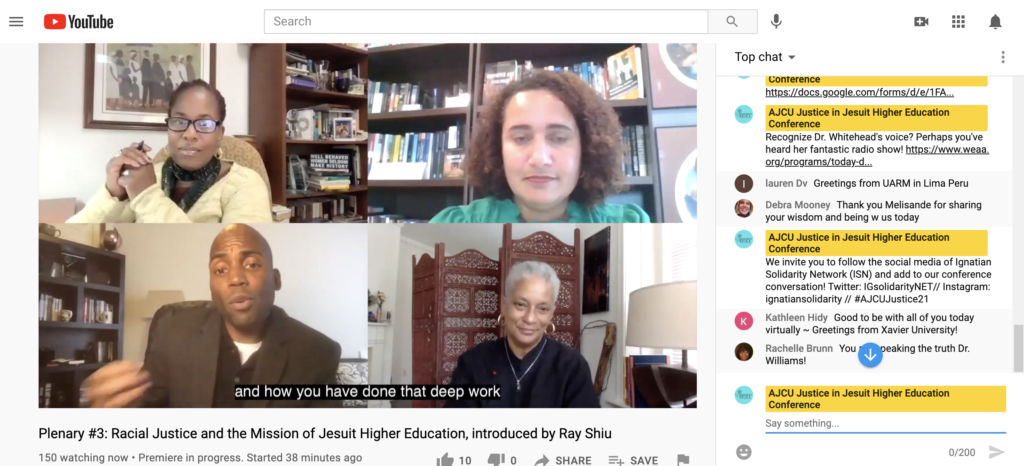This week we honor Juneteenth, a day of celebration to commemorate emancipation and the end of slavery in the United States. While this holiday offers a welcome opportunity to celebrate that particular historical event of independence, Juneteenth also presents a challenge to confront the enduring legacy of slavery in America and how it continues to manifest in our social structures. More than a distant memory, the spirit of Juneteenth has the potential to energize our ongoing work at Georgetown to grapple with the institution’s own history of enslavement in order to realize in the present day more justice and more equity in our community.

Juneteenth takes place in the midst of the AJCU Justice in Jesuit Higher Education Conference, a series of virtual programs intended to draw attention to the ways we are called to deepen a commitment to social justice in our schools. The conference featured a plenary session and a live question and response this week on “Racial Justice and the Mission of Jesuit Higher Education.” Many things shimmered in these discussions about racial justice in Jesuit higher education, but one image stood out for me as it relates to Juneteenth. Dr. Yohuru Williams, distinguished university chair and professor of history and founding director of the Racial Justice Initiative at the University of St. Thomas, called attention to the longitudinal work of racial justice. Racial justice efforts on our campuses will not succeed if they are temporary and they will not succeed, said Dr. Williams, if they only focus on “massive change.” Instead, he advised, we need to also focus on the capacity and potential of individuals to make change in their own lives.
The panel and Dr. Williams’ comments reminded me of a reflection written last summer by the Jesuit Patrick Saint-Jean, S.J.: “Juneteenth: A Day of Hope.” In this piece, Saint-Jean articulates the need for transformation of individuals as well as entire systems. The key ingredient in the work, for Saint-Jean, is hope:
“As a Black man in America, I see hope as the biggest weapon that I can use to fight against systemic racism. When I wake to go jogging, go to the store, drive to school, hope is the only faith that helps me make it through. I have to hope that I will make it back home each day. As a Black body, hope gives me resilience to continue despite every dehumanizing structure oppressing and suffocating me.”
Saint-Jean links this hope to a living spirituality. He invites us to a deeper moment:
“[Of the] divine timing for us to live with the audacity of hope in the midst of the chaos. This is a time that calls us to enter into a meditative conversation with themselves [sic] and uncover the unconscious biases that keep us from moving to a place of spiritual conversion, a metanoia. … Today, Juneteenth is more than a date. It is a place of hope for the Black community. … Juneteenth is like the resurrection.”

We are fortunate in the Jesuit network that Patrick Saint-Jean, S.J., has recently written “The Spiritual Work of Racial Justice: A Month of Meditations with Ignatius of Loyola.” This is a helpful and necessary new resource for reflecting on the work of racial justice through the lens of the Ignatian spirituality that animates our Jesuit campuses. I hope that this Juneteenth holiday provides space to reflect on how personal and collective hope can sustain the difficult work of addressing the wounds of racial injustice and struggling together toward the full promise of freedom.
